

Survey Reveals Insights on Skills Training and Development in Manufacturing Sector
Insights into Skills Training in the Manufacturing Sector
Overview
In a recent survey conducted by T-Net Japan, a leading provider of technical training services tailored for the manufacturing sector, insights into the effectiveness of skills training and development for engineers were gathered. The study involved 600 participants, comprised of 300 practical engineers and 300 managers across various domains such as mechanical and electrical engineering, as well as manufacturing technology. This article presents the key findings and implications of the research, shedding light on the state of technical training within the industry.
Research Methodology
The survey was conducted through an online questionnaire that spanned three days, from June 16 to June 18, 2025. The target demographic included both practical engineers—such as staff and team leaders—and managerial professionals in engineering disciplines, focusing on their experiences and perceptions surrounding technical training.
Key Findings
Training Duration
One of the significant findings revealed that, on average, practical engineers participated in fewer than 10 hours of skills training over the past year, accounting for 42% of respondents. Approximately 34% reported training sessions lasting between 10 and 30 hours. Notably, there were no substantial differences in training hours based on the size of the company.
New Graduate Training Period
Among managers, the most common response regarding the duration of training for new graduate engineers was over three months, reflecting 23.3% of the responses. A smaller percentage, 19.3%, indicated a training period of less than one month. Larger companies tended to offer longer training durations, suggesting a correlation between company size and the extent of employee training opportunities.
Perceptions of Training Environment
When asked about challenges, practical engineers identified significant issues that hinder effective training. The top three concerns were insufficient time for development (27.3%), excessive reliance on on-the-job training (OJT) (24.3%), and a shortage of qualified trainers (22.0%). This indicates a common backdrop of labor shortages affecting training quality across the sector.
Effectiveness of External Training Services
The survey assessed various external training models, revealing that face-to-face training sessions conducted by external organizations were deemed the most effective by 26.6% of managers. Conversely, many noted a lack of perceived value in e-learning, with 36% reporting no effective training from this platform, while others did acknowledge its benefits.
This divergence in perspective on e-learning effectiveness suggests that its impact may vary significantly based on participants' engagement levels and the quality of the curriculum.
Implications
The results of this survey offer critical insights into the perceptions surrounding skills training and employee development in the manufacturing sector. While there is a degree of satisfaction regarding growth environments, prevalent challenges such as dependence on OJT, time constraints, and trainer availability necessitate immediate attention.
T-Net Japan aims to bridge these gaps by providing tailored technical training services that prioritize practical, hands-on experiences, benefiting both employees and the overall manufacturing process. Their unique approach includes smaller, face-to-face training formats and customized programs designed to meet specific industry needs.
Conclusion
As the manufacturing landscape continues to evolve, fostering an environment of continuous learning and development through effective technical training will be all the more vital. By understanding the current landscape and addressing existing challenges, firms like T-Net Japan can spearhead initiatives to enhance the skills of engineers, ultimately contributing to overall productivity and innovation in the industry.
For those interested in exploring the full report, T-Net Japan offers a detailed download of the survey findings on their website, ensuring that professionals have access to the insights necessary for improving training and development in the workplace.



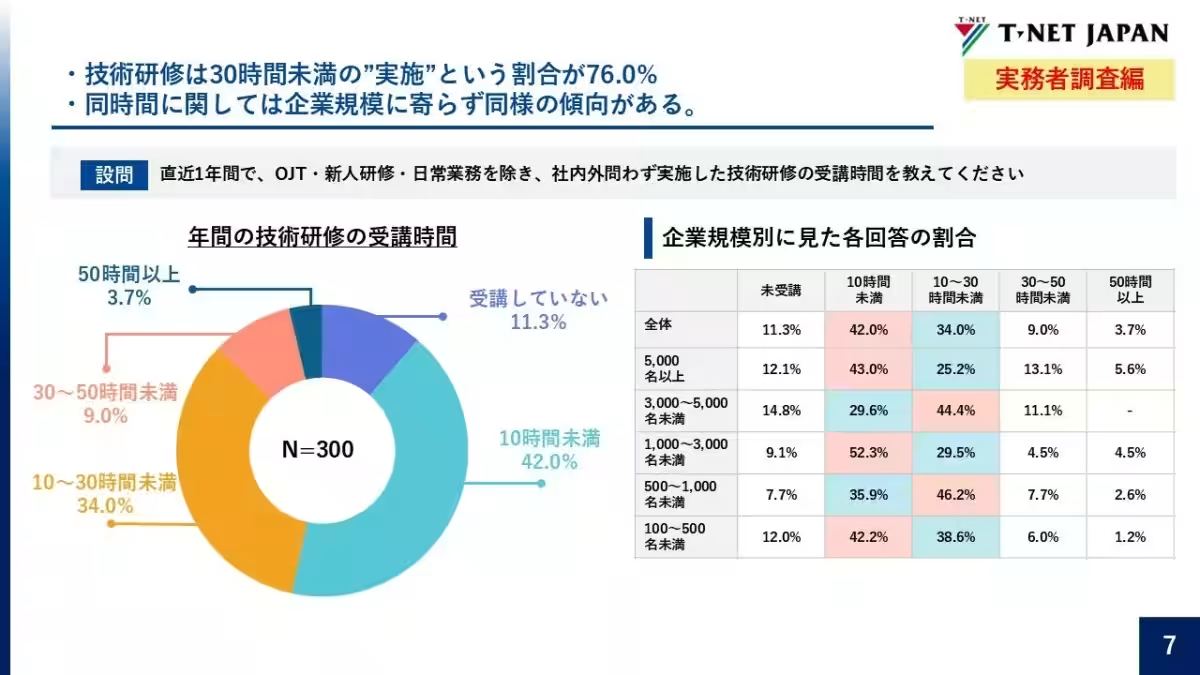
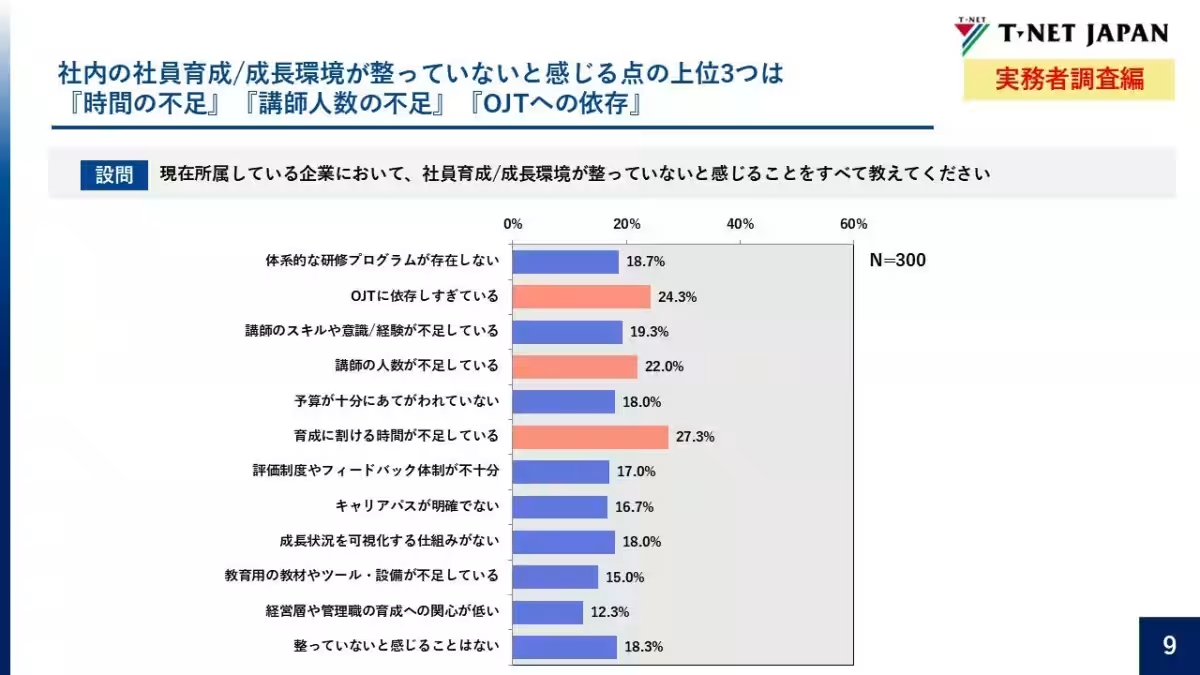
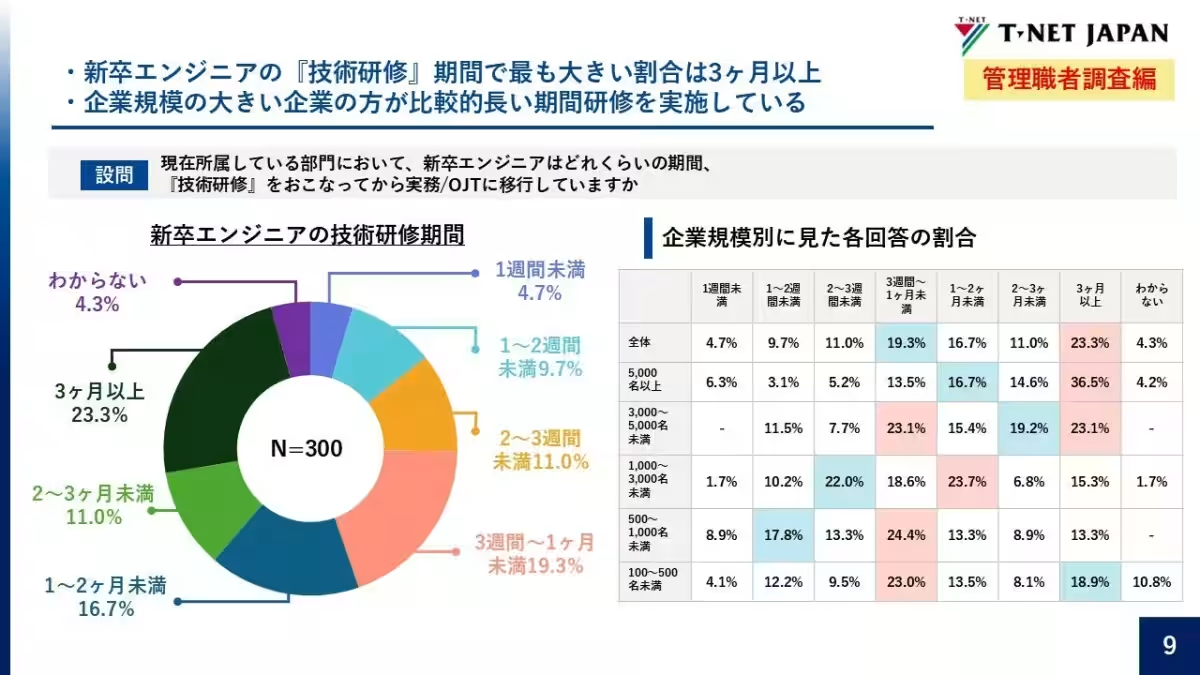
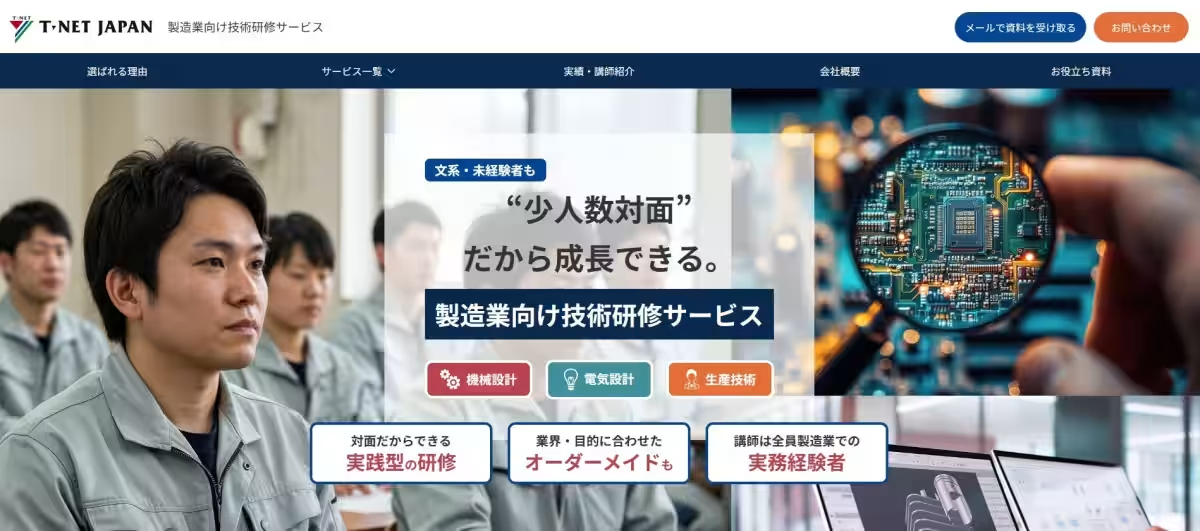
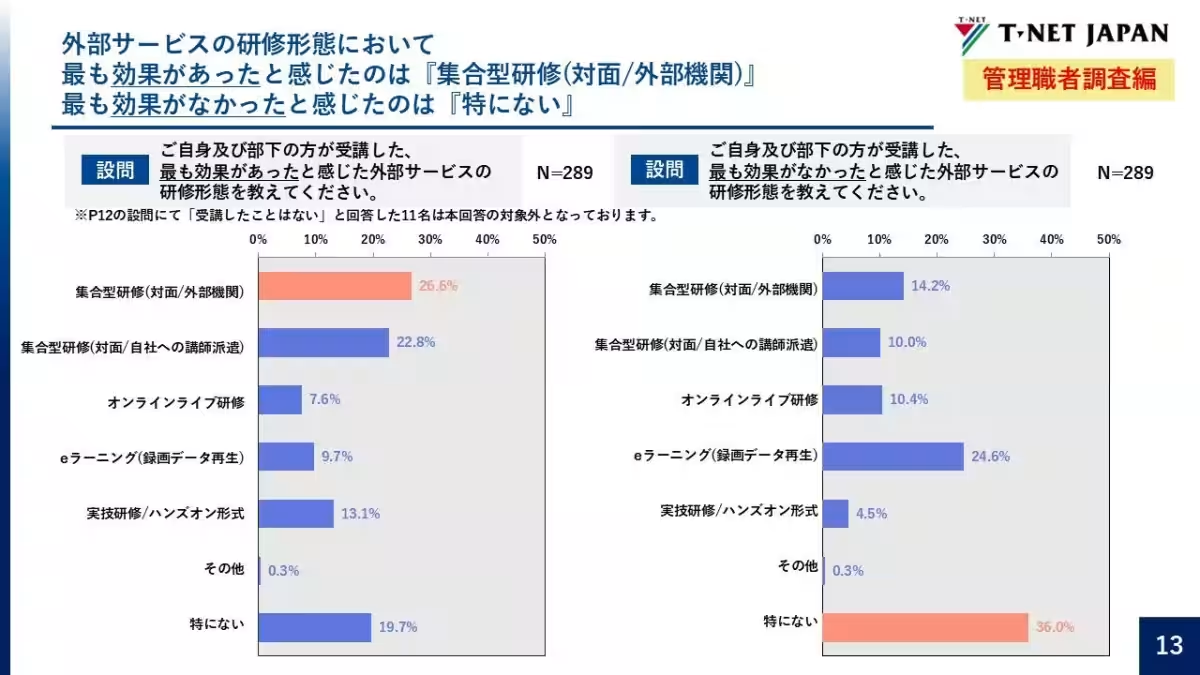
Topics Business Technology)










【About Using Articles】
You can freely use the title and article content by linking to the page where the article is posted.
※ Images cannot be used.
【About Links】
Links are free to use.